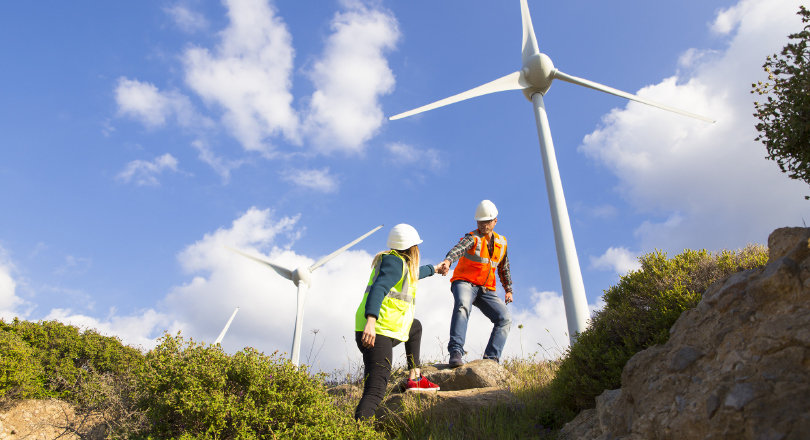A just transition to a low carbon economy is not simply about redeploying power station engineers but also about assisting suppliers of equipment and services to change their businesses so we protect high value, high skill jobs.
One business riding the winds of change is MRS Training and Rescue, formerly known as the Mines Rescue Service. While there is a mini-boom in minerals mining, large-scale deep coal mining ended in December 2015.
Prospect members at MRS have had to develop new markets for their specialised rescue skills to protect the business and create sustainable jobs in areas hit hardest by changes in the energy sector.
Wind generation is the leading renewables technology, and MRS have an enviable track record in providing rescue training to wind turbine constructers and operators. Global safety standards are developed by the Global Wind Organisation, supported by renewables generators in the UK such as E.on, Innogy, SSE and Ørsted.
MRS have recently developed a GWO-approved Working at Height and Rescue (Wind Turbines) qualification. With dedicated training facilities at Crossgates in Fife and at Knotingley, near Castleford, Prospect members at MRS are delivering this qualification.
With the closure of the last deep mine in Scotland at Longannet in 2002, MRS staff at Crossgates like Errol Parrish, operations manager, had to diversify the business to survive. With clients across hazardous industries such as oil, gas and wind, Crossgates has a wind turbine, used as part of our training courses for the Renewable industries.
As Errol notes, “This allows us to train course attendees in realistic conditions – important when learning practical skills. We have taken our mining skills and applied them to wind, reducing the risk to individuals in this vital part of Scotland’s economy.”
Members at Knottingley provided mines rescue services up to the final capping of Kellingley, Britain’s last large deep-mine. As Billy Gundry, operations manager at the Yorkshire rescue site observes, “it has been a long but interesting journey from mining to providing rescue training for wind turbines.”
With a new training facility at Knottingely, MRS can simulate conditions in various parts of the turbine:
- the turbine column from the ground to the generation cell,
- in the main cell containing the turbine and motor where electricity is generated,
- in the turbine hub and cone where staff have to crawl to perform maintenance work.
As approved assessors, Billy adds that as an approved assessor, MRS can offer and certify the first aid, firefighting training and manual handling required by GWO. – Whilst this is basic training,it is specific to working in a turbine.
The experience of MRS shows that the transition to a low-carbon economy can offer new markets for our members along the supply chain.
Mike Macdonald, Prospect’s full-time officer for MRS, reflects: “The work of MRS and other suppliers in improving safety in wind generation is a vital part of a just transition.
“We want Government to recognise this and remove the uncertainty that delays further investment. By working with businesses and unions, BEIS can boost confidence so we get the necessary investment in skills and equipment to make Britain a leading player in the global renewables business.”

